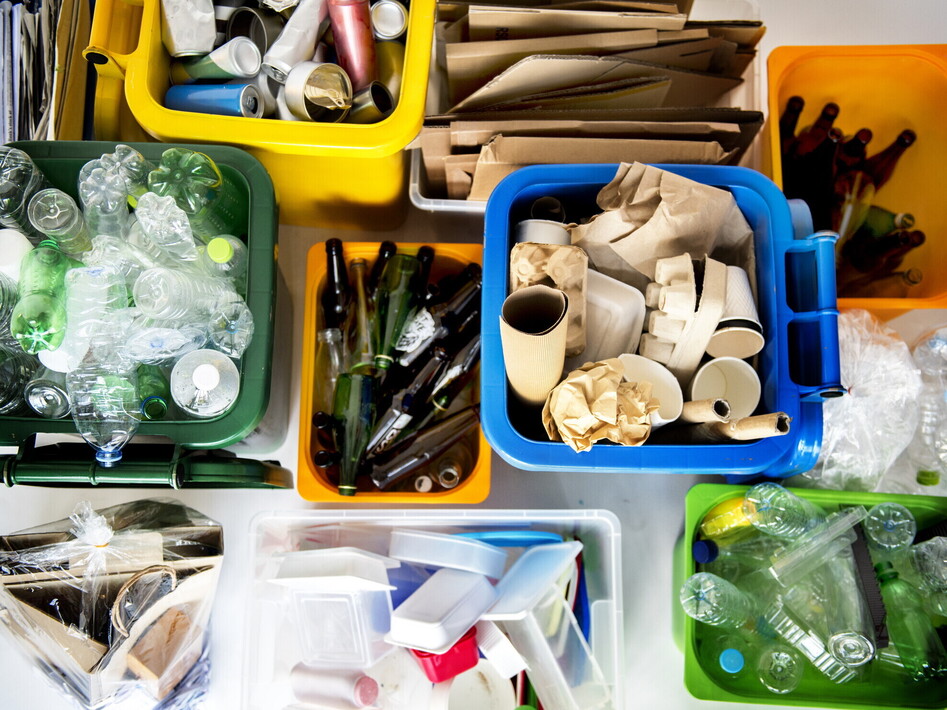Waste knowledge

In nature, the concept of waste does not exist. In fact, in biological cycles whatever is discarded by one organism becomes a resource for other living beings so that nothing is wasted, and everything is transformed. Dead organisms, animal faeces, or plant remains are defined organic waste and are used as food for particular organisms known as decomposers, that transform the waste products of other living beings into precious resources and are therefore very important. Up to the last century, man behaved very much like nature. Specially in the farming society, due to the lack of resources everything was utilized, and nothing was thrown as long as it was useful. Almost all that was thrown was organic and was disposed of by the decomposers in nature. The advent of the industrial revolution and the increase in goods brought into society, also determined an increase in the consumption, and therefore an increase in the amount of waste. In fact, in the current social and productive models, after withdrawing material and energy from the environment in order to produce consumer goods, the production of waste follows. Waste is not only organic as in the pre-industrial society, but is also inorganic (as in the case of plastic) and often waste remains in the environment for a long period of time as it is not a source of food for any organism. This implies two things: first of all, waste is generated by us during our daily activities, and by the industries that produce the products that we make use of to live, but also there are no cleaners that re-use a large part of our waste, and therefore it accumulates in large quantities. Human beings are trying to find some solutions. Which?
Waste in pre-industrial society ...
Even though in the past human beings produced small amounts of waste, the problem of where to deposit the same existed even then. Whatever could not be recycled or reutilized was often thrown on the road, with severe consequences for health. Alternatively, waste was burnt or buried underground outside the inhabited centres, thus giving rise to the first waste dumps. Waste in ancient time was very different from ours.
… and in the consumer products’ society
A big change took place in the second half of the XIX century. With the Industrial Revolution an intensive exploitation of the resources began. Industries started the mass production of items, that were more economical than those made by craftsmen and therefore more accessible to all. Soon humans passed from a frugal and semi-agricultural society to an industrial consumer society, that adopted disposable objects as their style of life.
Which waste
The waste we produce every day is defined Municipal Solid Waste (MSW) and includes whatever is discarded during our daily activities. All other waste is defined special waste, which includes waste produced by industrial activities, handcrafts, hospitals, etc.
In order to simplify waste management, MSW is subdivided according to its composition, also known as the product fraction.
Up to the Seventies, Municipal Solid Waste (MSW) was collected without any separation, and it was disposed prevalently in non-controlled dumps. As an alternative to the direct disposal of waste in the ground, thermal treatment or incineration was used. In Italy, the concept of recycling and recovery of materials through separate waste collection began only in the 90s. In this period also laws regulating waste disposal in the dumps were issued. In Italy a legislative measure, which was very important from the point of view of waste disposal, was Legislative Decree n. 22 dated 1997, better known as the “Ronchi Decree”, from the name of the Minister who signed the law. The more important aspect of this decree is that it represented a change in the legislation regarding all the regulations on waste. Practically, the philosophy of the decree is based on the belief that pollution produced by waste must be coped with by decreasing the total amount of waste produced, and not only by the simple disposal of waste in the dumps. At present, the Ronchi Decree has been superseded and cancelled by Legislative Decree n. 152 dated 2006, subsequently followed by Legislative Decree n. 205, dated 3 December 2010 – in force from 25 December 2010 – implementing European Directive 2008/98/EC on waste in the Italian legislation.
European Directive 2008/98/EC
The Directive states how waste must be treated in the Community. The primary aim of the directive is to protect the environment and human health, through the prevention of the negative and dangerous effects deriving from the production and management of waste. According to the directive, a greater protection of the environment requires the realization of a series of measures that are applicable according to an order of priorities: 1) prevention of waste; 2) preparation for waste re-utilization, 3) recycling; 4) another type of recovery (for example of energy), 5) disposal.
Ronchi Decree and Legislative Decree 52/2006
The Ronchi Decree defines waste as “any substance or object which the owner discards or intends or is required to discard”. First of all, this definition assumes that any goods are destined, sooner or later, to become waste. Secondly it can be deduced that the transformation from goods to waste depends mainly on the consumers’ choice.